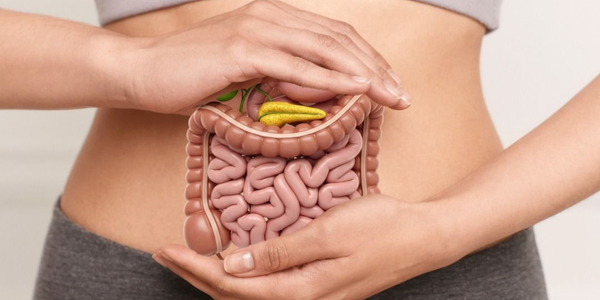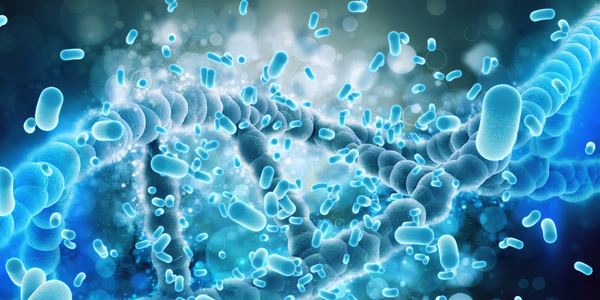How to Improve Gut Health: 7 Everyday Habits To Improve Gut Health
We all love to gorge on decadent dishes and delicacies every once in a while, but the problem arises when our digestion gets badly affected, leading to conditions like constipation, acidity, bloating, gas, diarrhea, stomach pains, and more. To maintain a healthy body and mind, it is important that we improve gut health.
How to improve gut health?
Our gut is a shelter to millions and millions of bacteria, many of which are responsible for our overall health and wellbeing. These bacteria, along with many viruses and fungi, form the gut microbiome. These organisms are not passive passengers on our body but help us develop into who we are and contribute to our overall health. Our gut microbiome is in influx all the time, and we need to mold it to help us develop the best health that we can have. There are many tips for a healthy gut that we can follow. Let us look at some of the best everyday healthy gut habits we can inculcate to improve gut health.
Consume probiotics:

Add more prebiotic fibers to your diet:
Prebiotics include foods that the bacteria and other beneficial organisms in the gut can feed on. Prebiotics may assist in maintaining a healthy gut by contributing to developing better digestive health, no antibiotic-related health issues, and so on. A few examples of prebiotic foods are high-fibrous vegetables and fruits like beans, asparagus, bananas, garlic, chicory, onions, whole grains, and the like. If you want to improve gut health, you must include these prebiotic foods in your diet.
Manage or reduce stress:

Drink plenty of water:
Drinking water is a simple habit that will go a long way in maintaining a balanced gut. Increased water intake can have a positive effect on the mucosal lining of the intestinal tract, which will keep things moving in the digestive tract and promote sound gut health.

Exercise regularly:
If you are of the opinion that nutrition alone helps the gut, then you are sadly mistaken. Regular physical activity helps our intestines to contract and enable waste to pass through them quite naturally. A healthy digestive system gives immunity a boost, which in turn helps the body to be healthy, up, and running. It is thus imperative to keep the digestive system working on a regular basis, and exercise clearly plays an integral role in that. Different forms of physical activity like yoga, cardio workouts, strength training, and more are ideal ways to start moving!
Avoid foods rich in sugar:
Consuming a lot of sugar or artificial sweeteners may lead to an imbalance of gut microbes. Eating foods that are high in sugar can cause obesity and metabolic diseases as they tend to increase bacterial strains that cause them. Foods high in dietary fiber that cause a slow release of sugar and which take longer to digest are considered as the best food for gut health.
Get sufficient sleep:
Research shows that sound sleep improves cognition, mood, and gut health. Research shows that irregular and disturbed sleep cycle negatively affect the gut flora, which causes inflammation, and the onset of several chronic health conditions. That is why sound, uninterrupted sleep for at least 7 hours will benefit health.
Apart from these habits, give up smoking, eat more vegetarian food, and avoid consuming unnecessary antibiotics when you can perhaps treat the symptoms with natural foods. These will also aid in restoring and maintaining a healthy gut.
References
- Palmnäs, Marie S A et al. “Low-dose aspartame consumption differentially affects gut microbiota-host metabolic interactions in the diet-induced obese rat.” PloS one vol. 9,10 e109841. 14 Oct. 2014, doi:10.1371/journal.pone.0109841 (https://www.ncbi.nlm.nih.gov/pmc/articles/PMC4197030/)
- Mailing, Lucy J.1; Allen, Jacob M.2; Buford, Thomas W.3; Fields, Christopher J.4; Woods, Jeffrey A.1,5 Exercise and the Gut Microbiome: A Review of the Evidence, Potential Mechanisms, and Implications for Human Health, Exercise and Sport Sciences Reviews: April 2019 - Volume 47 - Issue 2 - p 75-85
doi: 10.1249/JES.0000000000000183 (https://journals.lww.com/acsm-essr/fulltext/2019/04000/exercise_and_the_gut_microbiome__a_review_of_the.4.aspx) - The effect of drinking water pH on the human gut microbiota and glucose regulation: results of a randomized controlled cross-over intervention
(https://www.researchgate.net/publication/328839294) - Carabotti M, Scirocco A, Maselli MA, Severi C. The gut-brain axis: interactions between enteric microbiota, central and enteric nervous systems. Ann Gastroenterol. 2015;28(2):203-209. (https://www.ncbi.nlm.nih.gov/pmc/articles/PMC4367209/)
- Carlson JL, Erickson JM, Lloyd BB, Slavin JL. Health Effects and Sources of Prebiotic Dietary Fiber. Curr Dev Nutr. 2018;2(3):nzy005. Published 2018 Jan 29. doi:10.1093/cdn/nzy005 (ncbi.nlm.nih.gov/pmc/articles/PMC6041804/)
- Hemarajata P, Versalovic J. Effects of probiotics on gut microbiota: mechanisms of intestinal immunomodulation and neuromodulation. Therap Adv Gastroenterol. 2013;6(1):39-51. doi:10.1177/1756283X12459294 (https://www.ncbi.nlm.nih.gov/pmc/articles/PMC3539293/)

























Leave a comment